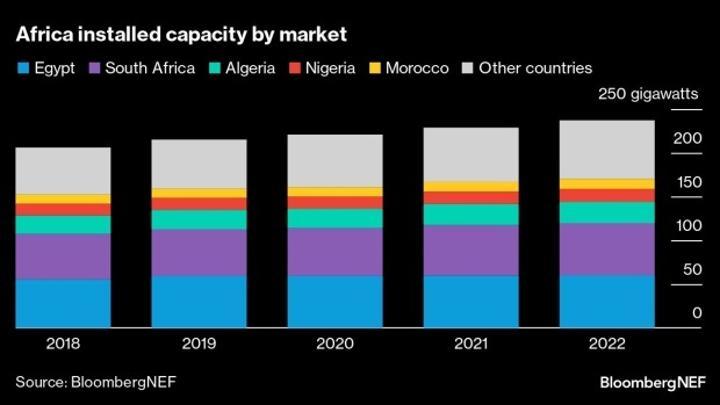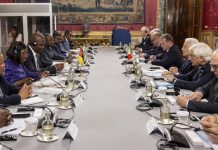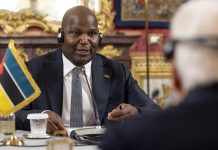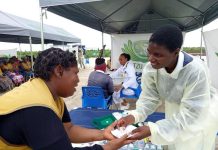Africa-Press – Mozambique. UK development bank British International Investment is still willing to consider funding energy projects in Africa that run on natural gas if they increase electricity access on the continent, according to officials.
As the world gears up for the next round of United Nations climate talks, which start in Dubai on Thursday, there’s growing pressure on financial institutions to stop supporting fossil-fuel projects. This has prompted concerns that the fight to tackle global warming could harm countries that suffer from energy poverty.
“The big challenge with development finance institutions is to find the right balance” that addresses more than 600 million people in Africa who lack reliable power, BII Chief Executive Officer Nick O’Donohoe said in an interview in Cape Town on Monday. The bank is “reconciling the need to change that with the need obviously to transition to net zero.”
The African continent, which has contributed just 3% of historic global greenhouse emissions, is disproportionately vulnerable to the effects of climate change, according to the UN. Yet it could also suffer continued deprivation if the push by some developed nations and regions, such as the European Union, to phase out of fossil fuels restricts investment in energy infrastructure.
BII’s policy reflects that of the UK, according to O’Donohoe. “We’ve tried to keep a position which is probably more flexible than some other countries,” he said. “We will support gas projects in cases where there’s a real developmental need.”
One such gas project is Globeleq Inc.’s 450-megawatt Central Térmica de Temane power station in Mozambique, where less than a third of the population has access to electricity. The plant is scheduled to produce electricity in 2024 and meet demand for 1.5 million households. The fuel will come from gas fields operated by Sasol Ltd. BII owns 70% of Globeleq, with Norwegian investment fund Norfund holding the remainder.
The bank has outlined about $6 billion of investment through Africa from 2022 to 2027 in areas that range from renewable power to supporting women-owned businesses. BII hasn’t made an investment in fossil fuels since 2021 and is working toward having a net zero portfolio by 2050, it said in response to questions.
In South Africa, oil and gas exploration and the power projects that would utilize the fuels there have resulted in court battles between environmental groups and Mineral & Energy Resources Minister Gwede Mantashe, who also advocates the use of coal in calling for greater energy access.
BII wouldn’t build gas projects in South Africa where there is an established source of baseload power, according to Chris Chijiutomi, the bank’s managing director and Africa head. The Temane project addresses “the lack of stable electricity in Mozambique, the state of the national grid,” and also could potentially switch to green hydrogen if that became commercially viable, he said.
Globeleq started commercial operations at the Cuamba solar and battery storage plant in Mozambique and is looking at other wind and solar projects in the country, according to Chijiutomi. BII is also part of a consortium looking at a green hydrogen project in Egypt and part of a joint venture to expand hydropower.
“Outside of South Africa, Egypt and Morocco, the pace of renewables, the development, is really, really slow,” O’Donohoe said. “Africa is desperately short of developers and people who really take on the challenge of getting these projects over the line.”
For More News And Analysis About Mozambique Follow Africa-Press






